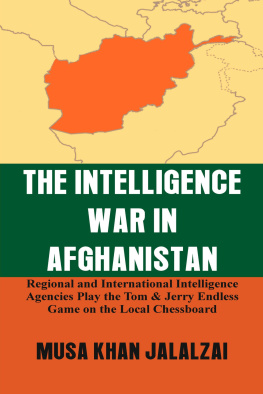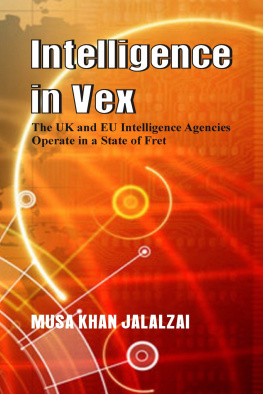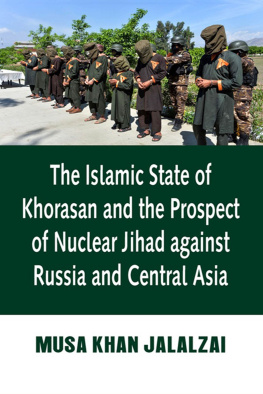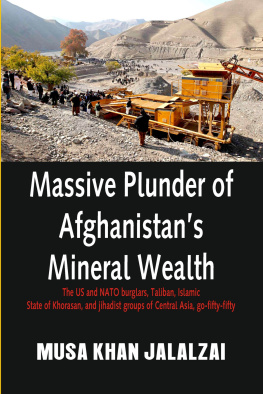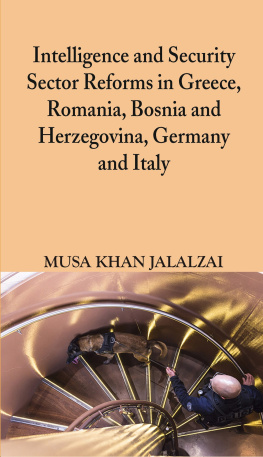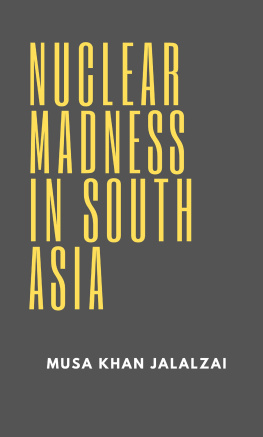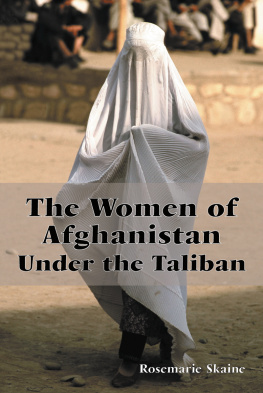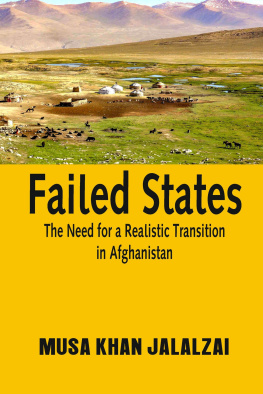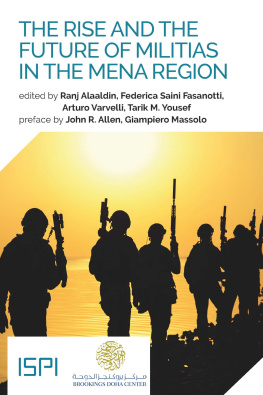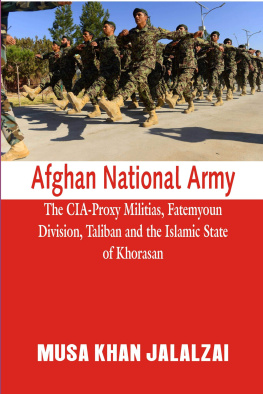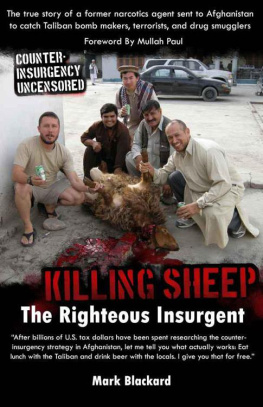Afghanistan: Militias Governance and their Disputed Leadership
Taliban, ISIS, US Proxy Militais, Extrajudicial Killings, War Crimes and Enforced Disappearances
Afghanistan: Militias Governance and their Disputed Leadership
Taliban, ISIS, US Proxy Militais, Extrajudicial Killings, War Crimes and Enforced Disappearances
Musa Khan Jalalzai

Published by
Vij Books India Pvt Ltd
(Publishers, Distributors & Importers)
2/19, Ansari Road
Delhi 110 002
Phones: 91-11-43596460, 91-11-47340674
Mobile: 98110 94883
e-mail:
www.vijbooks.com
Copyright 2020, Musa Khan Jalalzai
ISBN: 978-93-90439-48-5 (Hardback)
ISBN: 978-93-90439-49-2 (Paperback)
ISBN: 978-93-90439-54-6 (ebook)
All rights reserved.
No part of this book may be reproduced, stored in a retrieval system, transmitted or utilised in any form or by any means, electronic, mechanical, photocopying, recording or otherwise, without the prior permission of the copyright owner. Application for such permission should be addressed to the publisher.
In Asia and the Middle East, the role of proxy militias have been of great importance since 2001. From assassins and mercenaries to bounty markers and paramilitary organizations, all are sponsored by states to further their national security interests. Analyst and editor Joshua Duke (06 August 2020) views the operational mechanism of these militias with different perspective; Assassination has commonly been used as a form of political terrorism. From a historical context, assassinations have been used to instigate larger movements, such as insurrections, rebellions, revolutions, and other events over time designed to conquer a social system or ideology of an era or region on Earth. In Afghanistan, the US and NATO proxy militias were also established to kill and kidnap innocent Afghans. The services and expertise offered by these militias are typically similar to those of governmental security, military or police forces in the country, but they are not answerable to the Defence Ministry. As substantiated by their diverse role, private militias acted for the CIA, NATO members and non-ally states. Killed and looted the US army and kidnapped young children and women with impunity. Nevertheless, they have also committed war crimes in night raids, destroyed houses, kidnapped young girls, women and boys and damaged national critical infrastructure.
Afghanistan is still run by proxy militias of different internal and external stakeholders. In October 2015, Kunduz was destroyed by these militias which looted banks, markets and houses. After the Soviet invasion of Afghanistan, and emergence of Mujahideens militias in Pakistan and Iran, regional powers, US, NATO and the Arab worlds military experts arrived in Pakistan to train, support, and arm every terrorist and extremist group to defeat the Soviet army in Afghanistan.
Afghan communist governments also established several proxy militias to counter the Mujahideen insurgency, but these militias couldnt play effectively due to the lack of proper training and modern weapons. The Dostum militia (Gillam Jam) was better trained by the government-purveyed weapons and financial resources to operate across the country. During the SovietAfghan War in the 1980s, Dostum supported Afghan National Army and the regional commander of the countrys north, commanding about 20,000 troops mostly Uzbeks. In 1992, he unhorsed Dr. Najibullah government, joined the Mujahideen militias, and established the Junbish Milli party to play a political role in future government. At present, Dostum was maintaining a strong militia of 40,000 men-adorned with modern and sophisticated weapons. Mr. Dostum played a crucial role in crushing the Mujahideen in several Northern districts, but later on became part of civil war. Analyst and expert Niels Terpstra noted important points of civil war after the Soviet withdrawal:
The withdrawal of the Soviet Union in 1989 created a power vacuum. Political fragmentation and continued violence characterized the 19891994 period. Afghanistan descended into a brutal civil war between rivalling mujahideen groups and other strongmen. The war against the Soviet Union had already lasted for ten years, and its impact on Afghan society was severe. An estimated one to two million Afghans were killed during the war and land mines and indiscriminate bombing injured hundreds of thousands more. Hence, a whole generation grew up as refugees or as fighters. With the Soviet Union gone, much of the territory was open to armed opportunists and radical preachers. Local armed groups continued to fight over land, water sources, and mountain passes at different localities. The various mujahideen groups became either players in the battle for Kabul or localized armed actors. The multitude of commanders increasingly tolerated their fighters to loot and rape the civilian population, partly due to their inability to pay salaries and as an incentive to keep them fighting. The key individuals that would eventually establish the Taliban as a separate movement in 1994 were relatively passive between 1989 and 1994. Those who would come to form the senior leadership after 1994 used to be village mullahs or worked in religious education and therefore returned to their home villages or original madrassas. Some mujahideen, however, reconvened in 1993 and 1994 to discuss the chaotic situation in Kandahar. The dynamics of rebel governance and rebel legitimacy, however, do not exist in isolation from other powerful actors. The actions/responses of the state are relevant to the analysis of rebel legitimacy as well. Powerful external actors may also influence the relations between armed groups and civilians. Much research has been devoted to the effects of external support to rebel groups and the attempts of rebel groups to acquire international legitimacy and/or recognition. In this article, I shift the perspective and demonstrate how powerful external actors that support the incumbent government shape (though less directly) the dynamics of rebel governance and rebel legitimacy. The presence of foreign enemy forces is an important source of legitimacy for rebel groups and has remained relatively under-studied in the literature on rebel governance. Rebel legitimacy is a function of present-day events but also of prior armed conflicts and societal tensions. As Schrder and Schmidt observe, the most important code of the legitimation of war is its historicity.
All these private militias of communist and Mujahideen era are still dancing to different tangos in all provinces of Afghanistan. They receive financial support from different channels-challenging territorial authority of the national army of the country. The role of warlords and their political and economic role have been highlighted by Analyst and researcher, Romain Malejacq. He has noted the use of these militias by states against their own alienated citizen to stabilize their territories:
States in turn have an interest in using the warlords ability to arbitrage, that is, to take advantage of a price differential for political, economic, and cultural goods across terrains as part of their own extraversion strategies. While warlords are tied to their previous territorial control, their local authority gives them leverage among international actors. They take advantage of the complexity and heterogeneity of the international system, in which many competing actors with a variety of domestic and foreign policy agendas coexist and operate in a system where subjects are governed by a complex hodgepodge of foreign powers, international and non-governmental organisations (NGOs), and domestic institutions. Though warlords interact with a constellation of national and international actors who rigidly structure the political environment, they have the ability to operate and exert agency in that environment. Todays successful warlords, writes Mark Duffield, think globally but act locally. They are indeed able to act financially and politically in the international system without interference from the state in which [they are] based while exerting authority at the local level. The warlords political success (and legitimacy) in part rests on their ability to conduct their own foreign policy in ways that are otherwise reserved to sovereign states (through high-level diplomacy for example), as well as on their ability to conduct relations with (and infiltrate) their own state.
Next page

